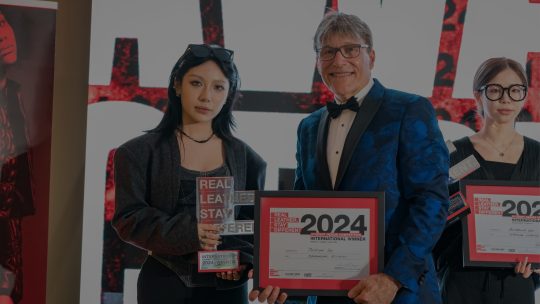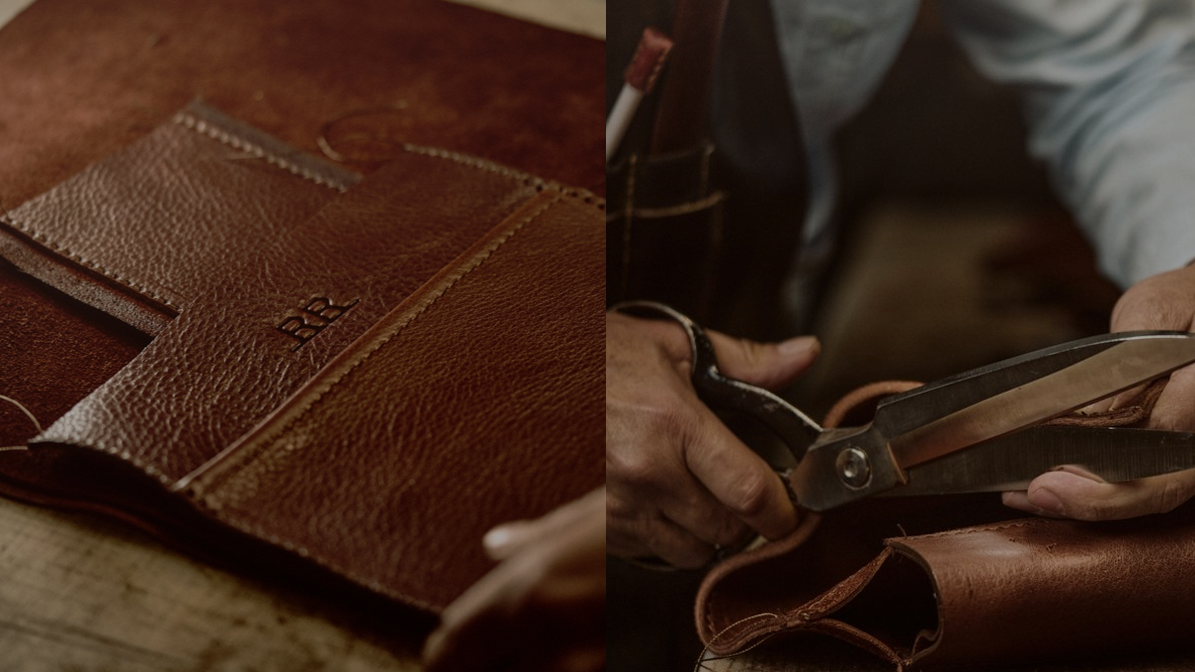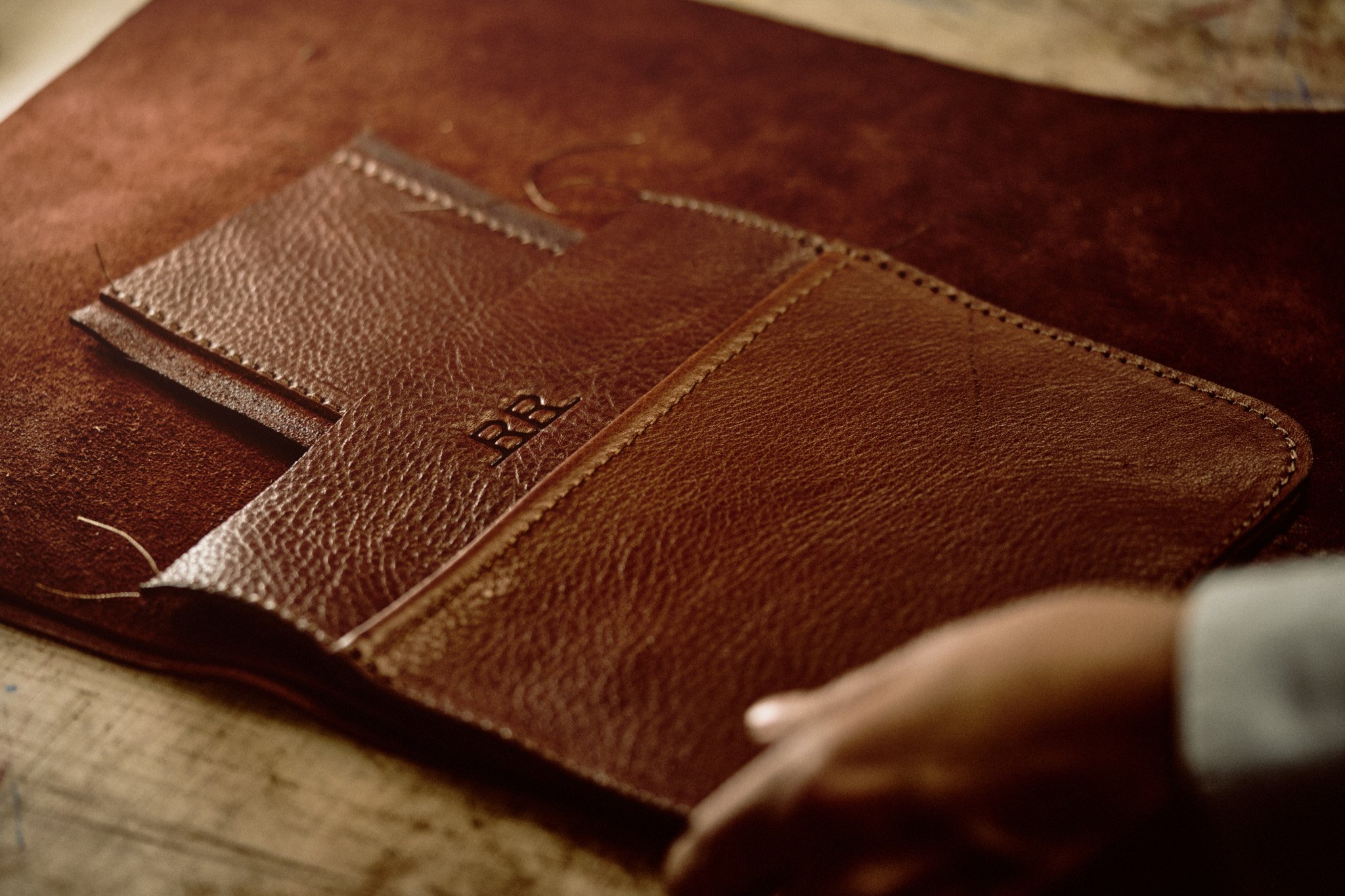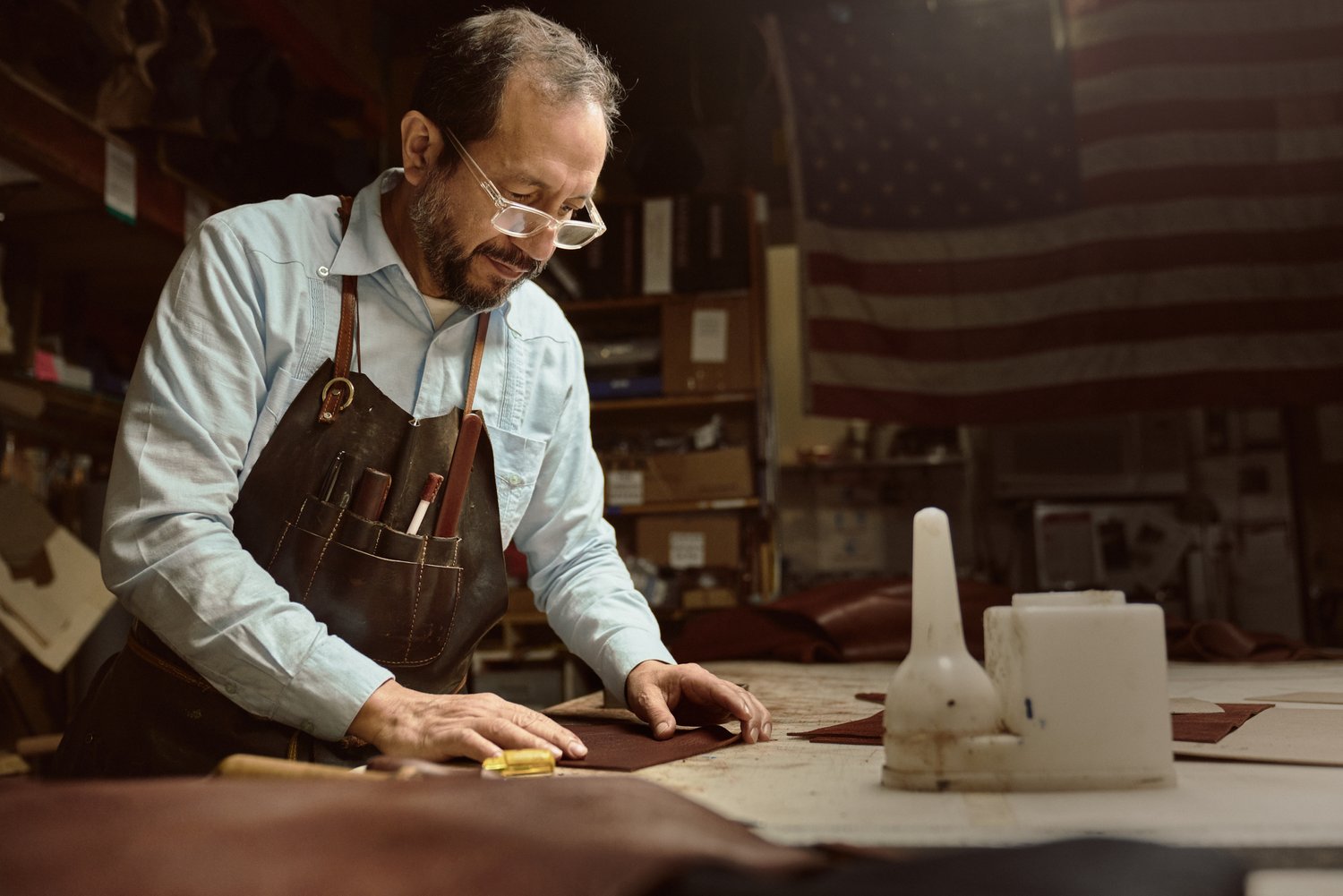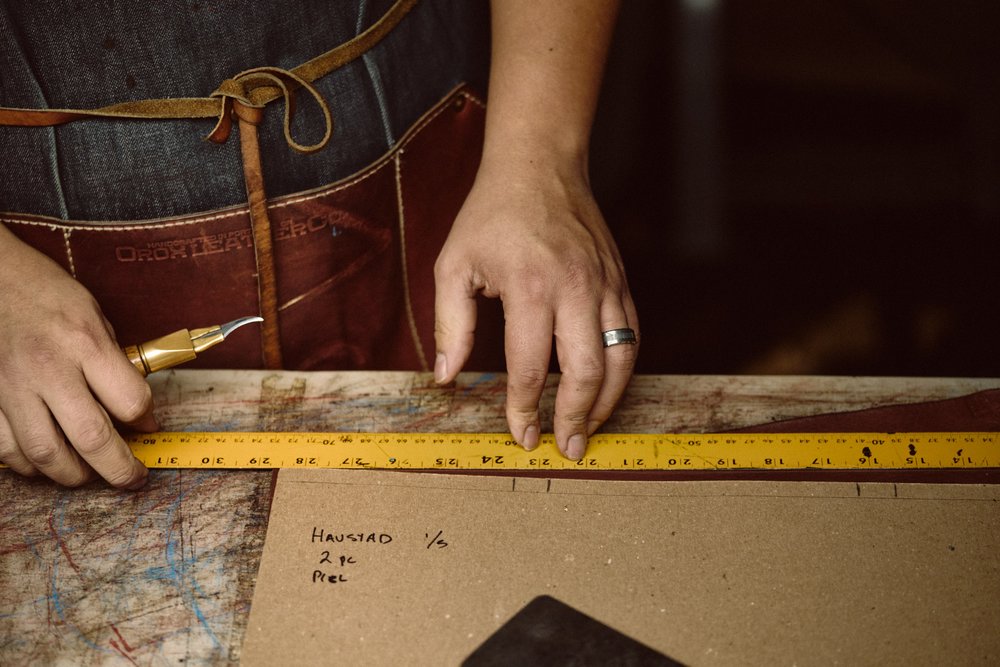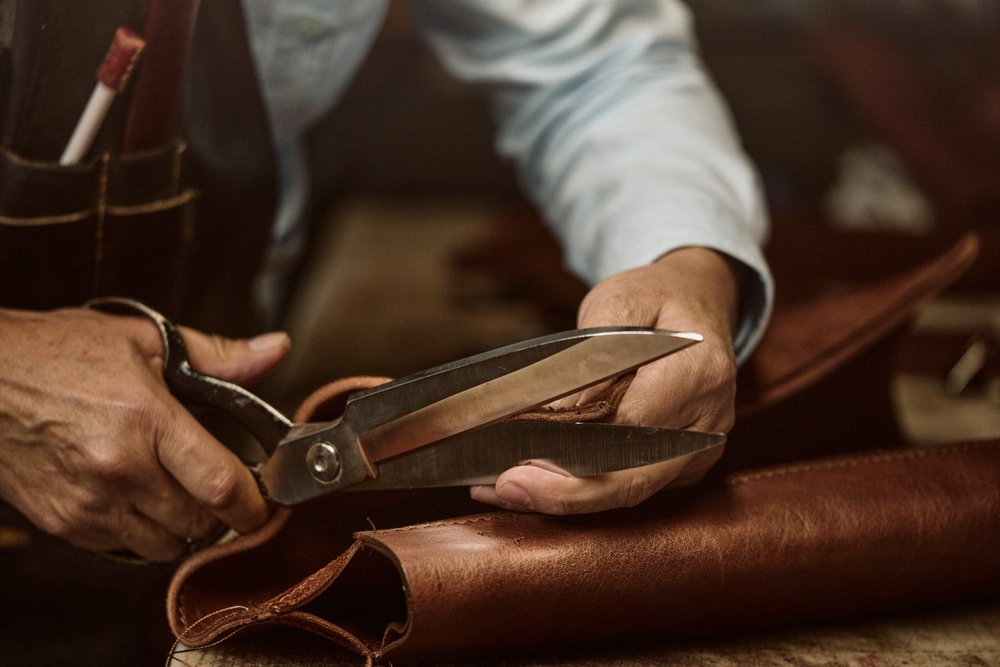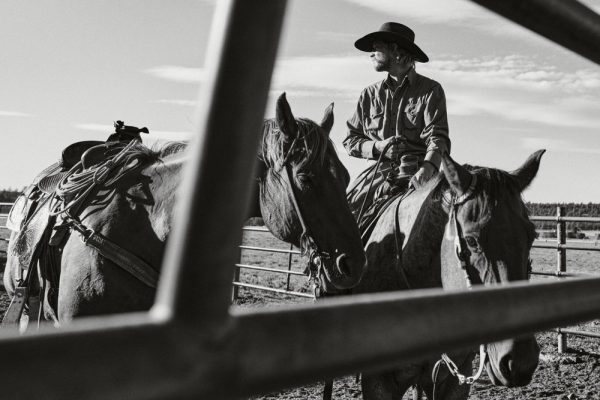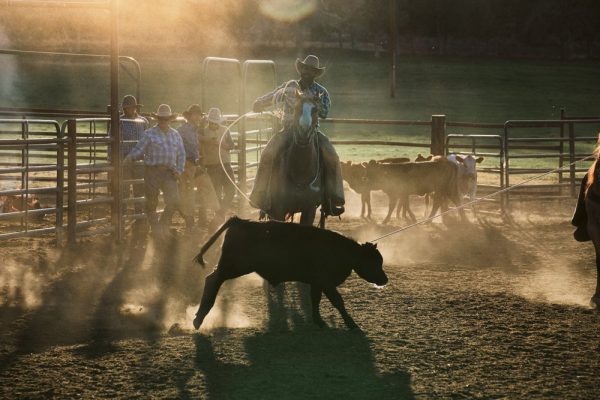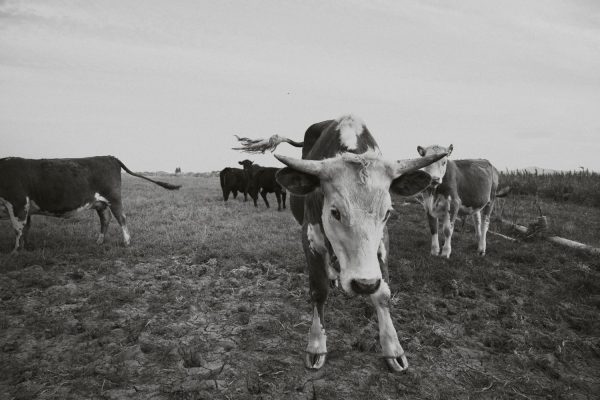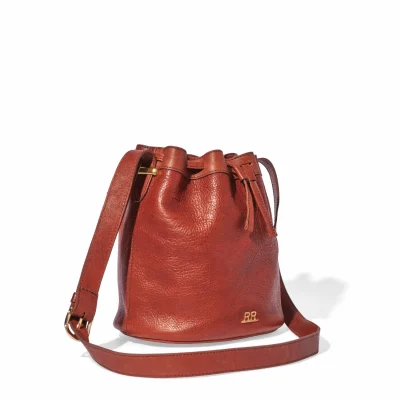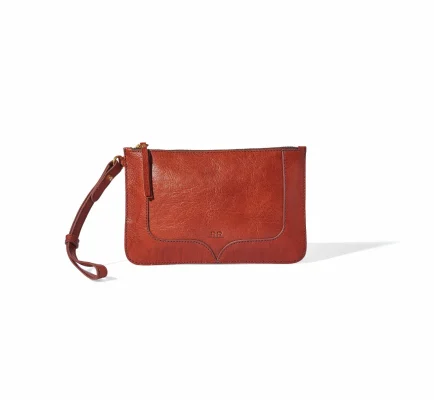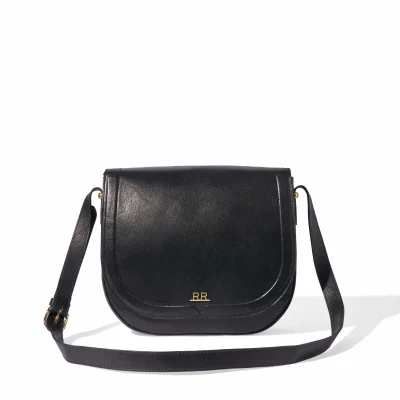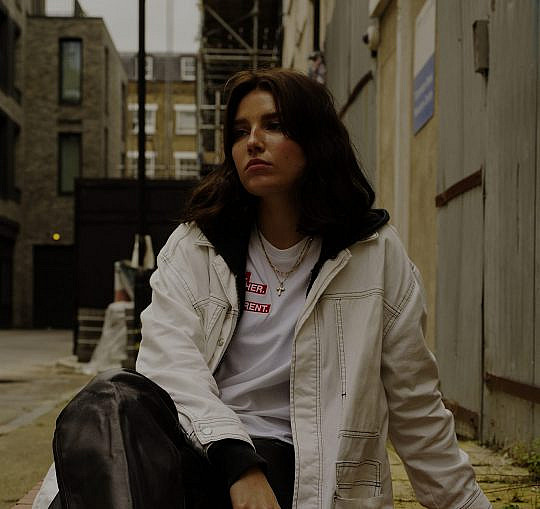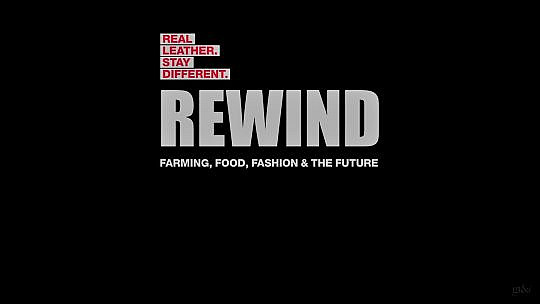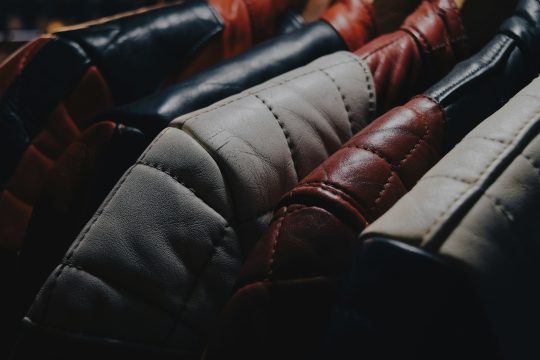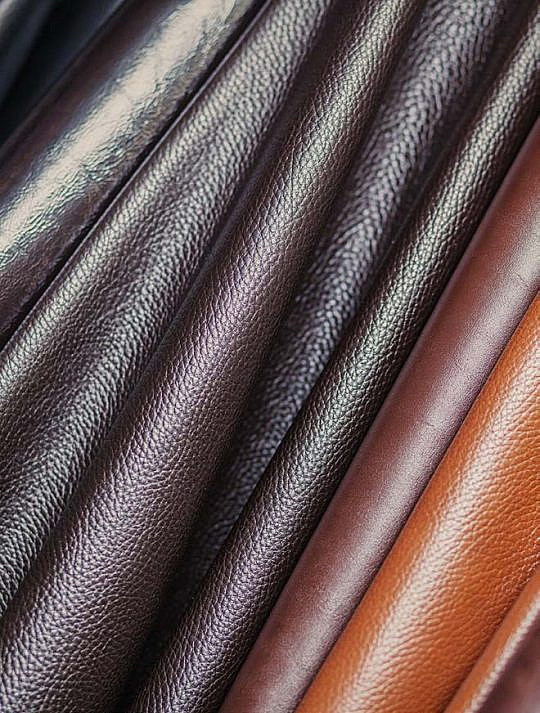Cate Havstad-Casad, the founder and creator of Oregon-based regenerative accessories brand Range Revolution, is someone who knows that every aspect of the supply chain is crucial when it comes to ethical leather production.
Before launching the line, she had already founded her own celebrity-loved hat brand at the age of just 23 – and alongside her husband Chris, runs a ‘closed loop’ farm that produces meat, vegetables and grain using totally organic and circular methods. It is her passion for conscious agriculture that led her to explore the leather production industry, and where big changes can be made.
Speaking during a recent webinar, she said: “After a decade of really trying to connect with consumers and get them to care about where the food on their plate came from, I identified that there was a huge opportunity and a huge gap of connection between fashion consumers and where the fibres on their body are coming from.”
Touching on the huge impact of synthetic fabrics, she added: “A lot of animal proteins such as leather has been totally devalued… and so the fashion consumer has got further and further away from understanding the role of natural fibres in a sustainable fashion supply chain.”
In launching Range Revolution, Cate hopes to raise awareness of regenerative farming methods and their longterm benefits to the environment, as well as produce luggage, bags and accessories that offer classic designs using traceable, sustainable leather.
Range Revolution first launched with tote bags and ‘weekender’ luggage that offered practical storage (cowboy hat included) made in regenerative, traceable leather – meaning that all hides are produced using methods that help to conserve the biodiversity and soil health of the land.
Being proudly Oregon based, the brand’s leathers are all sourced from American ranches and vegetable tanned at Leather Working Group-approved gold tanneries for minimal environmental impact – and each hide can be traced exactly back to its origin.
Cate believes that traceable leather is the future of the fashion industry, and that there are huge opportunities for regenerative farms to capitalise on that. “Traceability will be the word of the future, and this requires a lot of cross industry collaboration to bring visibility to a supply chain that includes many stakeholders,” she tells Choose Real Leather.
“[Going forward], we also believe that designers and brands must accept that the cost of raw materials must go up if we are to provide fair returns to the processors and ranchers for the work they do to improve social and environmental outcomes.”
As for the future of Range Revolution, she adds: “We’re launching direct-to-consumer this December with our full collection of handbags, luggage and small leather accessories. In 2024 we will be launching in select retailers, developing a capsule home goods collection, a curated swatchbook for furniture and interior designers, and a linesheet for corporate gifting. In addition, Range will be debuting its traceability technology platform which allows consumers to view the provenance journey of the leathers from ranch to finished product in their hands.”
Range Revolution’s new collection will be available in November: www.rangerevolution.com
Photos from Range Revolutions collaboration with The Mighty Creature Company
